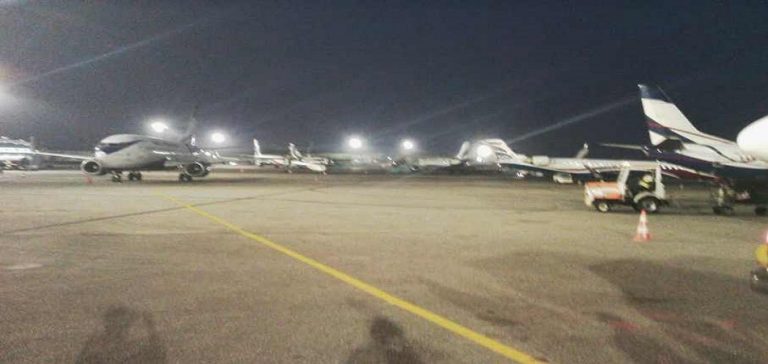
The U.S.-Nigeria Air Transport Agreement, initially provisionally applied in 2000, has officially come into force as of May 13, 2024. This milestone, announced by the United States Embassy and Consulate in Nigeria, marks a significant advancement in the bilateral aviation relationship between the two countries.
The agreement, which aligns with the U.S. Open Skies international aviation policy, aims to foster a modern civil aviation relationship. It emphasizes high standards of aviation safety and security, promoting a competitive and consumer-friendly environment.
According to the statement from the U.S. Embassy, the agreement “establishes a modern civil aviation relationship with Nigeria consistent with U.S. Open Skies international aviation policy and with commitments to high standards of aviation safety and security.”
Register for Tekedia Mini-MBA edition 19 (Feb 9 – May 2, 2026): big discounts for early bird.
Tekedia AI in Business Masterclass opens registrations.
Join Tekedia Capital Syndicate and co-invest in great global startups.
Register for Tekedia AI Lab: From Technical Design to Deployment (next edition begins Jan 24 2026).
Key Provisions and Opportunities
The agreement includes several crucial provisions such as:
- Unrestricted Capacity and Frequency: Airlines from both countries can operate without limitations on the number of flights.
- Open Route Rights: Airlines can freely choose routes.
- Liberal Charter Regime: Easier regulations for charter flights.
- Open Code-Sharing: Enhanced opportunities for airlines to enter code-sharing arrangements.
These provisions are expected to liberalize the international civil aviation sector in Africa, promoting tourism, commerce, and stronger economic and commercial partnerships.
Impact on Economic and Commercial Partnerships
The U.S.-Nigeria Air Transport Agreement strengthens the economic ties between the two nations, promoting people-to-people connections and creating new opportunities for airlines, travel companies, and customers. The agreement is seen as a significant step forward in liberalizing air travel in Africa.
“This agreement with Nigeria is a step forward in liberalizing the international civil aviation sector in Africa and further expands our strong economic and commercial partnership, promotes people-to-people ties, and creates new opportunities for airlines, travel companies, and customers,” the statement highlighted.
With this agreement, air carriers can provide more affordable, convenient, and efficient air services. This is expected to boost tourism and commerce between the U.S. and Nigeria, offering travelers and shippers better options and enhanced services.
The U.S. Open Skies Policy
The U.S.-Nigeria Air Transport Agreement is in line with the U.S. Open Skies policy, which has been promoting airline operational flexibility since 1992. The policy minimizes government interference, encouraging competitive practices and consumer benefits. According to the U.S. Department of State, Open Skies agreements have expanded cooperative marketing, liberalized charter regulations, and improved operational flexibility, all while maintaining high safety and security standards.
The policy has been instrumental in the globalization of U.S. airlines, providing unrestricted market access to international markets. The U.S. currently holds reciprocal Open Skies agreements with over 130 partners, covering more than 70% of international departures from the U.S.
Implications for Nigerian Airlines
For Nigerian airlines, the U.S.-Nigeria Air Transport Agreement offers expanded market access, allowing them to operate more routes to and from the U.S. without capacity and frequency restrictions. This increased flexibility enables Nigerian carriers to enhance their international presence and compete more effectively globally.
The agreement also facilitates better code-sharing opportunities with U.S. carriers, improving connectivity and offering passengers a wider range of travel options. The liberal charter regime allows Nigerian airlines to operate charter flights more freely, addressing seasonal demands and niche markets.
These developments are expected to enable Nigerian airlines to offer more competitive pricing and improved services, thereby attracting more passengers and cargo. The agreement’s benefits extend beyond airlines to travel companies and customers, promoting a more vibrant and interconnected aviation market.
The U.S.-Nigeria Air Transport Agreement’s official implementation marks a historic milestone in the aviation relationship between the two nations. By providing a more competitive and liberalized aviation market, the agreement supports the growth of bilateral trade and investment. It also strengthens people-to-people ties, fostering greater cultural and economic exchange.
It is expected that domestic players in the Nigerian aviation industry will leverage the agreement and expand their operations beyond domestic routes.



